Patna Girl Builds Biogas Plants in Villages, Provides Electricity to Poor Farmers!
It was the prevalence of many social and environmental issues that drove this young woman on an extraordinary path towards social development.
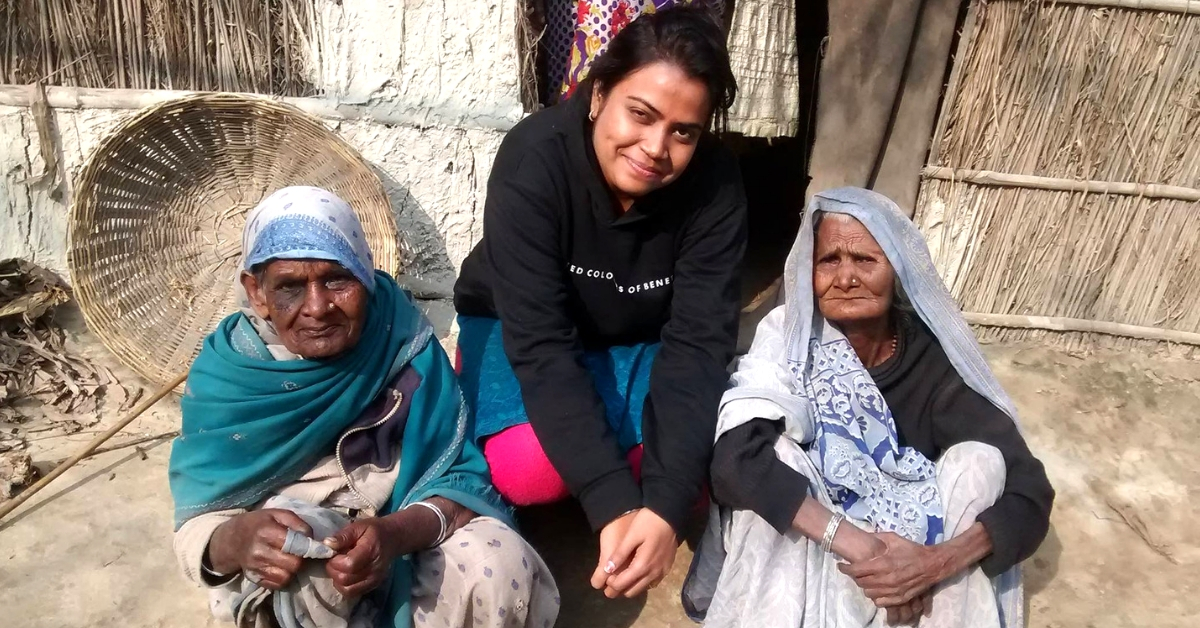
City born and bred she may be, yet Akansha Singh was aware of the economic and social inequalities that exist within India. But it wasn’t until she got to the ground and observed first-hand did she realise the scale of the issue.
After completing her Masters in Social Entrepreneurship from the Tata Institute of Social Sciences (TISS) in 2014, Akansha had set out to Jhabua district in Madhya Pradesh as part of an internship.
She was 24 at the time.
“That was a devastating eye-opener for me. The two weeks that I was there, I observed no households had toilets neither did they have any proper power supply. Which meant, the women had to cook food before nightfall as their farmer husbands finished their farming activities by that time. One thing that had particularly affected me was that these families consumed their meals cold because they had to finish preparing dinner while there was still natural light,” says Akansha to The Better India.
During this period, she noticed many social and environmental issues in the region. The women were still cooking using cow dung cakes, and the entire family was inhaling hazardous smoke regularly.
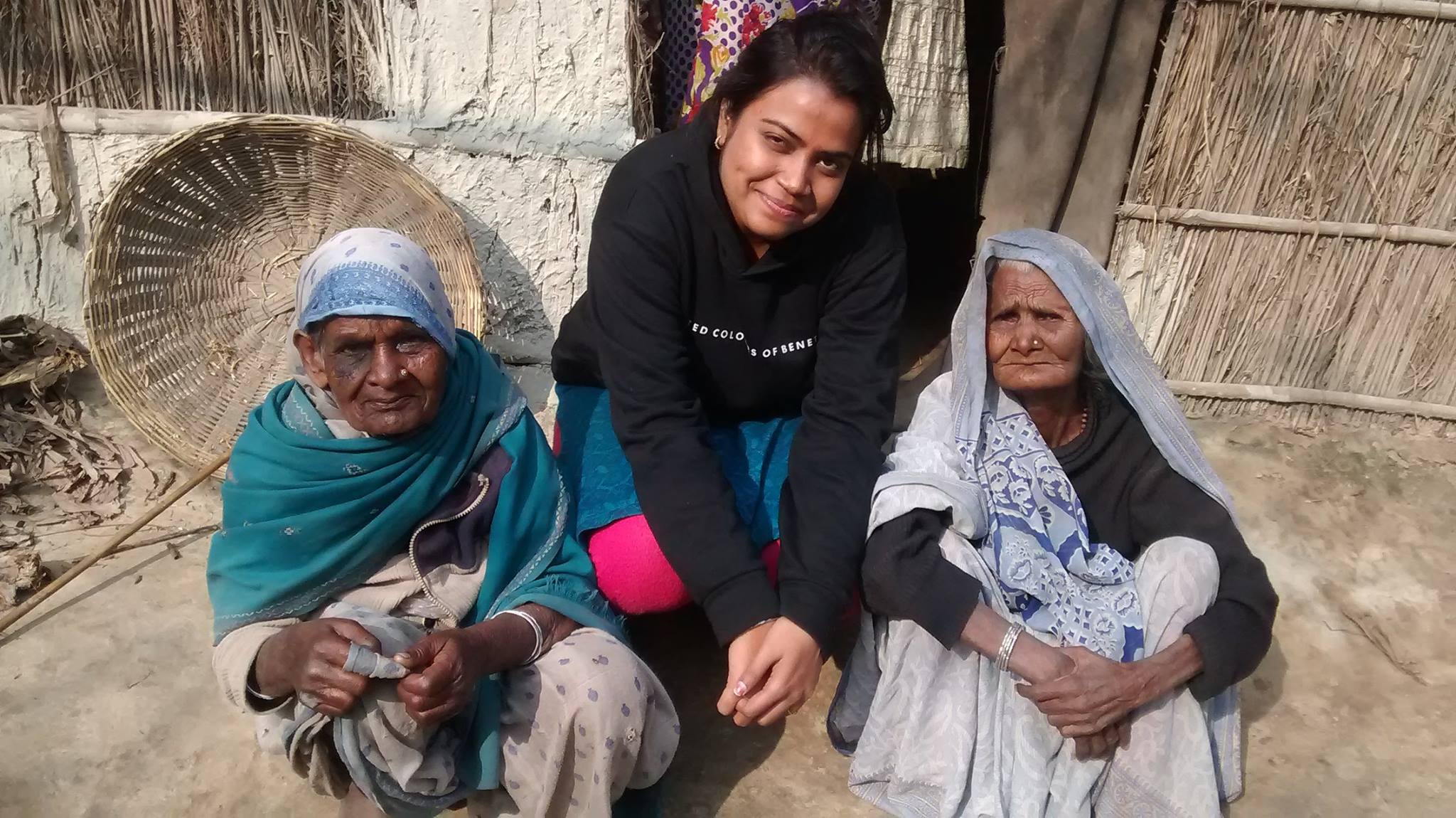
Furthermore, the region was primarily agrarian with impoverished farmers holding small land holdings and depending heavily on chemical fertilisers and pesticides.
“The years of usage had messed up the pH levels in the soil, and thus its fertility. Also, the village pond—their primary source of water—had been much abused out of ignorance. There was no proper management for biodegradable waste from kitchens. The villagers dumped the waste in the same pond from they took water for household purposes as well as to wash their livestock,” she explains.
The accumulated biodegradable waste led to mosquito breeding threatening the lives of the families and affecting the livestock and the farmers burnt rice husk to curb it, thus completing the circle of an unhealthy lifestyle.
“All of these issues affected me quite a lot. There were electrification schemes for rural India, but here was the prime example of its inefficiency. The villagers were quite literally burning holes in their pockets paying corporations for fertilisers and pesticides. But it was only worsening their livelihoods. I felt why farmers should pay external agents if they could generate their electricity and in ways that could resolve all of their other issues too,” she explains.
And that’s how the idea of bioelectricity came by.
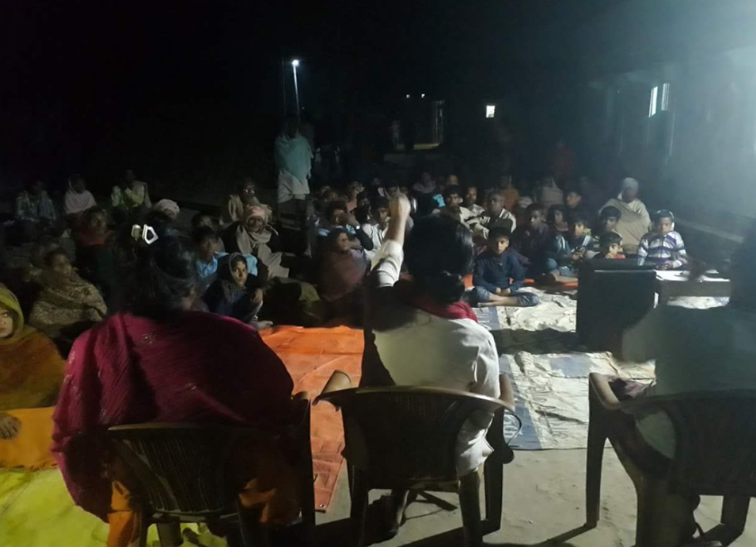
“The rural parts of India is heavily dependent on the cattle population, which makes the scope of bioelectricity immense. A typical biogas plant can easily generate electricity to power an entire community by using manure and biodegradable waste. Also, the gas from the plant could help the women in the kitchen. What is even better is that the farmers can utilise the slurry, a bye-waste, as bio-fertiliser as well as bio-pesticide,” she says.
With that, came the conceptualisation and establishment of Swayambhu, a project dedicated to light up the lives of poverty-stricken farmer families through bioelectricity. And to realise her ambitious plan, she decided to pilot it in her home state of Bihar.
“I zeroed down on Samastipur, where a Dalit community of 50 households resides in abject poverty and without any electricity. My roommate at TISS, who made the suggestion, was the Block Development officer here. It had been a difficult journey, but the result is that these families now have electricity in their houses by paying a nominal amount of Rs 60 per month,” she proudly adds.
But it took Akansha roughly four to five months of relentless convincing for the villagers to even acknowledge her plan.
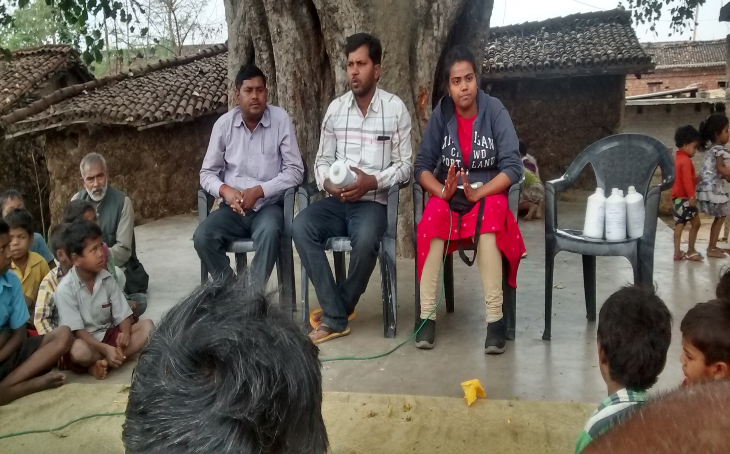
“The case was that these people knew about biogas plants but felt that paying this much for electricity would pinch their already meagre incomes. I could understand their dilemma, but I tried to dig deep,” Akansha recalls.
She found out that these farmers had leased lands from landlords and wealthier farmers, but they were leaching them for the electricity charges incurred during farming activities. For instance, the landowners paid Rs 2/hr themselves and forced the farmers to part with Rs 150/hr toward the electricity bill.
“On the other hand, these farmers and daily wage earners would willingly pay Rs. 5 per day to recharge their mobile phones among other things but were unwilling to pay for the electricity. We had to change their mindsets,” Akansha recalls.
Finally, after months of convincing and explaining to them the many benefits of the project, the villagers yielded, and Akansha began looking for land to build the plant.
“Fortunately, a person from another community volunteered and donated a patch of land for the project. It is remarkable as caste system is much prevalent in the region, but this kind individual wanted the underprivileged community to lead better and empowered lives. From there, our journey started,” she says.
She credits Ashutosh Kumar, co-founder of Swayambhu as well as Ayushman Foundation, a non-profit organisation, of playing a vital role in making the project a success.
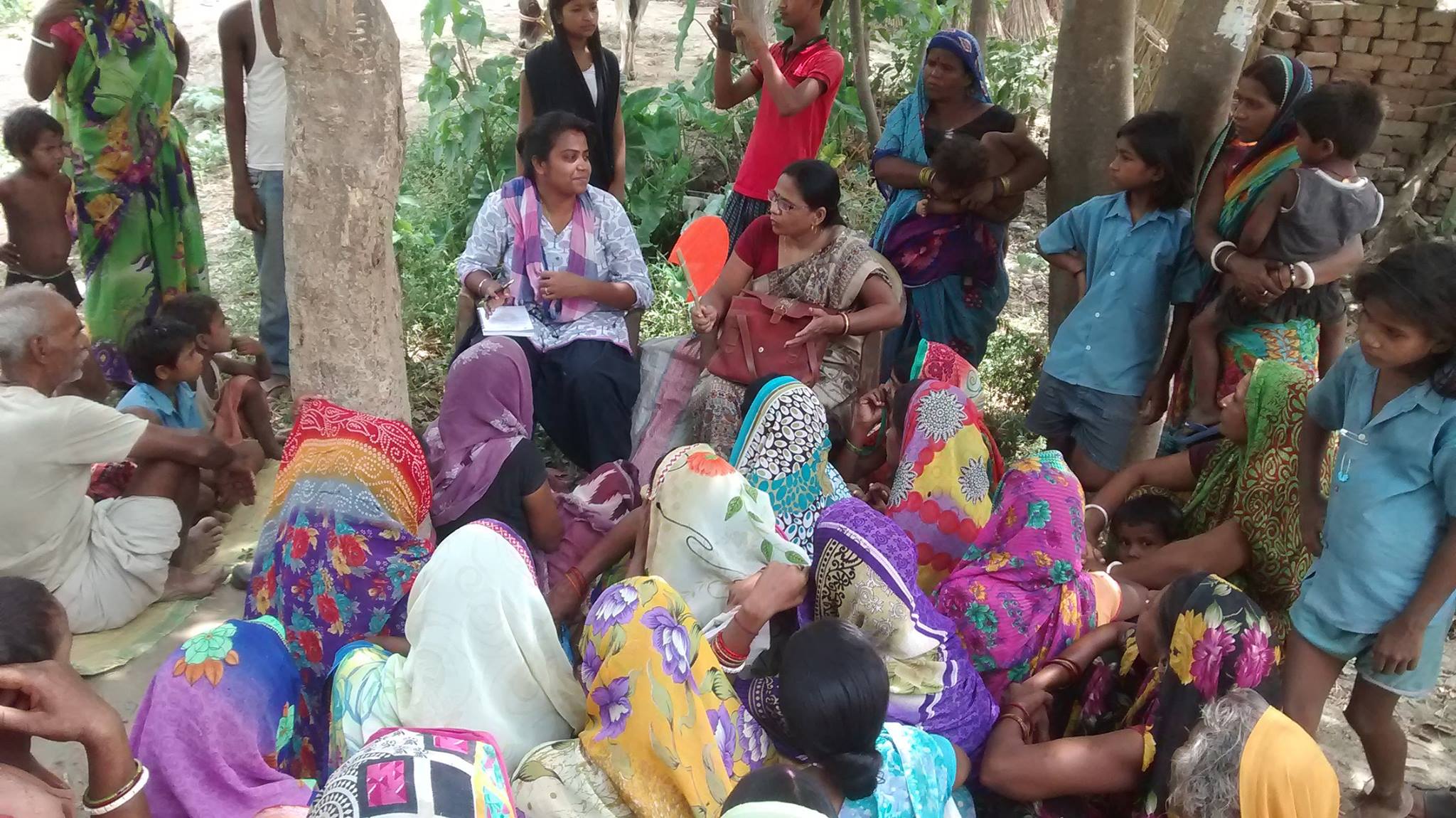
“The foundation has been providing technical as well as marketing assistance. The biofertilisers and biopesticides are tested in their labs to certify they’re 100 per cent organic. They also help us market these products,” Akansha adds.
She also attributes word of mouth to have played a role in furthering their initiatives. Today, they have two biogas plants in Samastipur; one with 2-hour bioelectricity capacity while the other supplies power for four hours.
Swayambhu received its initial funding from DBS Bank, Singapore. Her project was also aided partly by the beneficiaries and mostly by both government and non-government agencies.
“There has been a visible change in these areas. After seeing how electricity has brightened up their lives, the beneficiaries have become truly committed to the cause and pay charges without fail. Also, ever since they have ditched chemical pesticides and fertilisers for the organic manure from the plant, they have been saving a considerable amount of money as well as observed better yield. Our solution has impacted in multiple folds,” Akansha adds.
In addition to community biogas plants, they have also worked on individual plants for bioelectricity, including one in collaboration with students of IIT Patna.
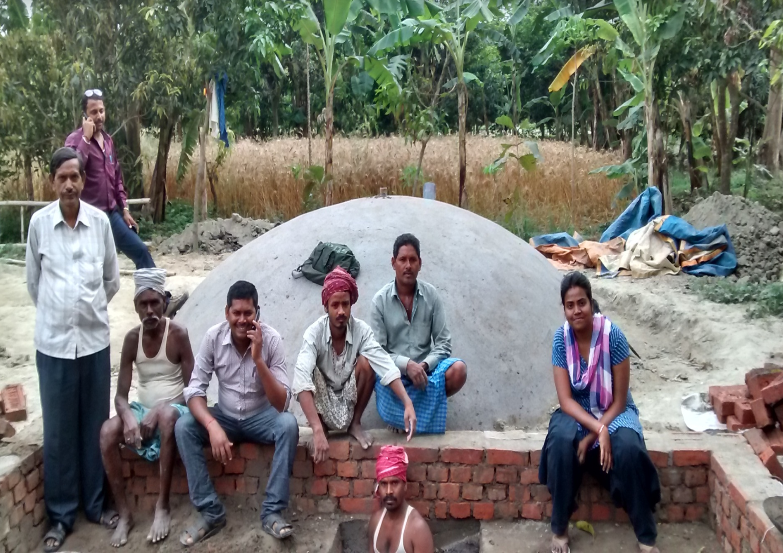
Akansha shares that they are keen on looping in women and empowering them with sustainable livelihoods framework through their initiative.
“The slurry from the plant can be utilised for making incense sticks, dhoop, flower pots as well as manure pellets. The village women can easily earn a good income by making these products. With biogas in their kitchens and bioelectricity in their homes, there is enough time for them to earn a livelihood,” she explains.
In a time when most youngsters would rather work abroad or enjoy the perks of a cushy job in metropolitan cities, we ask Akansha what prompted her to walk an unconventional path and why particularly the rural side.
“As a student of social entrepreneurship, the prevalence of social disparities distressed me. Facilities like electricity, water supply and better lifestyles are the basic right of every individual, whether they live in urban or rural settings. For most people, besides the obvious lack of facilities, there is no charm in working in the villages. I was driven by the realisation that if I, being an educated person, would not do it, then who would?” she shares.
The Swayambhu team is working on scaling up their bioelectricity project and surveying states like Jammu and Kashmir and Uttarakhand for feasibility.
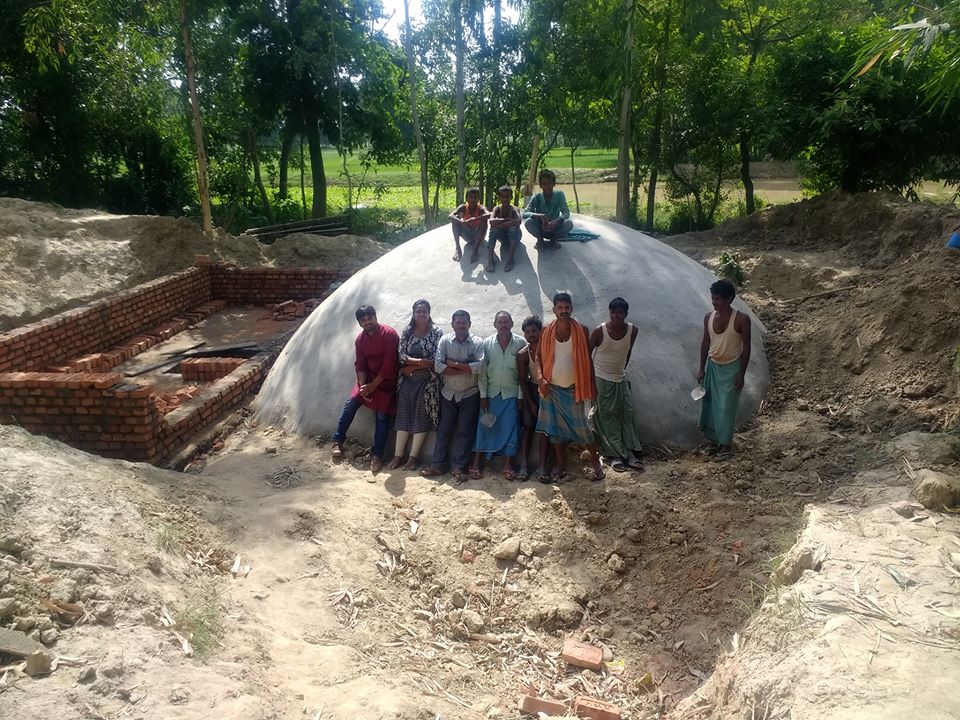
They are also looking for aid to fund their efforts in making rural parts of the country access bioelectricity.
Akansha’s determination and earnest efforts in transforming the weaker sections of the society are commendable. Swayambhu is a model of empowering the rural poor to lead an economically stronger and healthier life.
You may also like: Kerala’s ‘Cycle Didi’, Who has Brought Extraordinary Change to Bihar’s Most Downtrodden
If you wish to lend a helping hand to Swayambhu, you can contribute to their crowdfunding campaign here.
(Edited by Saiqua Sultan)
Like this story? Or have something to share?
Write to us: [email protected]
Connect with us on Facebook and Twitter
If you found our stories insightful, informative, or even just enjoyable, we invite you to consider making a voluntary payment to support the work we do at The Better India. Your contribution helps us continue producing quality content that educates, inspires, and drives positive change.
Choose one of the payment options below for your contribution-
By paying for the stories you value, you directly contribute to sustaining our efforts focused on making a difference in the world. Together, let's ensure that impactful stories continue to be told and shared, enriching lives and communities alike.
Thank you for your support. Here are some frequently asked questions you might find helpful to know why you are contributing?













